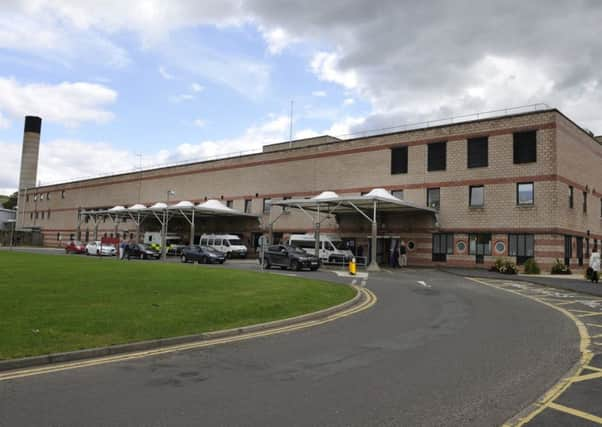NHS Borders cancelled one in six ops in December, figures reveal


New statistics show that in December 2017, NHS Borders cancelled a higher percentage of planned operations than any other health board in Scotland.
The figures, published by NHS Scotland’s information services division, show that 17.3% of the 359 operations planned were cancelled by the region’s health board.
Advertisement
Hide AdAdvertisement
Hide AdThat compares to a national figure of 10.8% and is far higher even than the second worst figure, of 12.8% for NHS Lothian.
By far the most common reason for the one in six cancelled operations in December was “capacity or non-clinical reasons,” an issue at NHS Borders for the past few years.
That is defined as a shortage of staff, beds or equipment or because a previous theatre session overran.
Overall, 12% of operations were cancelled for that reason, more than four times the national average of 3.2%.
Advertisement
Hide AdAdvertisement
Hide AdThe latest statistics have led to renewed criticisms from local politicians John Lamont, MP for Berwickshire, Roxburgh and Selkirk, and fellow Conservative Rachael Hamilton, MSP for Ettrick, Roxburgh and Berwickshire, both of whom have raised the issue of cancelled operations with NHS Borders bosses in the past.
The figures come despite repeated assurances from health chiefs that work is being done to reduce cancellation rates.
Cliff Sharp, medical director at NHS Borders, said: “We undertook surgery on 297 patients during December. We had planned to see 359 patients.
“Of the 62 cancelled operations, 19 were either at the patient’s request or for a clinical reason.
Advertisement
Hide AdAdvertisement
Hide Ad“This means that one person in every eight who we had planned to see had their procedure deferred for non-clinical or capacity reasons – mainly because of bed availability as a result of the pressures the system was under.
“While this is not where we would want to be in terms of seeing people, we appreciate how important operations are and how disappointed those who we weren’t able to see will be.
“There were numerous winter pressures being absorbed by the Borders General Hospital during December, and that continued into January.”
Over the course of last year, 531 out of 5,021, more than one in 10, scheduled operations in the Borders were cancelled, 144 of them by patients and 386 of them by medical staff, 141 of those for clinical reasons and 245 for capacity or non-clinical reasons.
Advertisement
Hide AdAdvertisement
Hide AdMr Lamont said: “Everyone appreciates the winter months are the toughest for health boards to deal with, but even so, for one in six patients to be told they can’t have their operation is nothing short of dreadful.
“I’ve repeatedly raised this issue, and cancellations have troubled NHS Borders for a while now.
“I know that staff are acutely aware of the problems cancelled operations cause.
“We need to look again at whether health boards with large rural populations like NHS Borders are being sufficiently supported.”
Advertisement
Hide AdAdvertisement
Hide AdMrs Hamilton said: “Waiting for an operation is an anxious ordeal in itself, but to have one cancelled just intensifies and prolongs that unpleasant feeling.
“I will continue to call on the Scottish Government to give the attention the Borders General Hospital deserves and needs.”
South Scotland Labour list MSP Colin Smyth added: “The pressure that staff are under in our NHS is huge, and unfortunately so long as there aren’t enough resources being invested, this pressure will simply keep growing.
“Staff are doing an incredible job, but they need more support and resources from the Scottish Government to minimise the number of operations that are being cancelled.
Advertisement
Hide AdAdvertisement
Hide Ad“Over 240 operations were cancelled in the Scottish Borders over the past year because local hospitals couldn’t cope, and that should set the alarm bells ringing in the government. It shows the level of pressure our hospitals are under.
“Many of these cases will have left patients living in further pain until they finally get the operation they need, and that can have knock-on effects for their work, family and mental health.
“More needs to be done by the government to prevent these cancellations occurring, and that means more resources.”